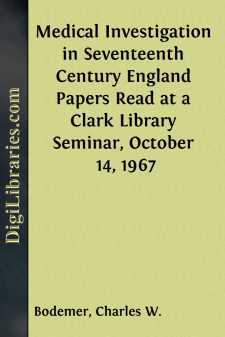Categories
- Antiques & Collectibles 13
- Architecture 36
- Art 48
- Bibles 22
- Biography & Autobiography 813
- Body, Mind & Spirit 142
- Business & Economics 28
- Children's Books 17
- Children's Fiction 14
- Computers 4
- Cooking 94
- Crafts & Hobbies 4
- Drama 346
- Education 46
- Family & Relationships 57
- Fiction 11829
- Games 19
- Gardening 17
- Health & Fitness 34
- History 1377
- House & Home 1
- Humor 147
- Juvenile Fiction 1873
- Juvenile Nonfiction 202
- Language Arts & Disciplines 88
- Law 16
- Literary Collections 686
- Literary Criticism 179
- Mathematics 13
- Medical 41
- Music 40
- Nature 179
- Non-Classifiable 1768
- Performing Arts 7
- Periodicals 1453
- Philosophy 64
- Photography 2
- Poetry 896
- Political Science 203
- Psychology 42
- Reference 154
- Religion 513
- Science 126
- Self-Help 84
- Social Science 81
- Sports & Recreation 34
- Study Aids 3
- Technology & Engineering 59
- Transportation 23
- Travel 463
- True Crime 29
Sort by:
by:
Zane Grey
CHAPTER I For some reason the desert scene before Lucy Bostil awoke varying emotions—a sweet gratitude for the fullness of her life there at the Ford, yet a haunting remorse that she could not be wholly content—a vague loneliness of soul—a thrill and a fear for the strangely calling future, glorious, unknown. She longed for something to happen. It might be terrible, so long as it was wonderful....
more...
by:
Raymond F. Jones
During its three years' existence, the first Wheel was probably the subject of more amateur astronomical observations than any other single object in the heavens. Over three hundred reports came in when a call was issued for witnesses to the accident that destroyed the space station. It was fortunately on the night side of Earth at the time, and in a position of bright illumination by the sun. Two...
more...
In speaking from these words last Sunday morning, and in endeavoring to enforce the great truth which they express, I began with referring to certain facts which characterize that most brutal and ruthless military revolution which has just commenced in France, and the recent news of which made every heart, that cherishes any regard for Freedom and Humanity, burn with indignation. The first statements...
more...
by:
Richard Aldrich
MY PURPOSE My purpose is to discuss simply, intelligibly, yet from a scientific point of view, the sensations known to us in singing, and exactly ascertained in my experience, by the expressions "singing open," "covered," "dark," "nasal," "in the head," or "in the neck," "forward," or "back." These expressions correspond to our sensations...
more...
CHAPTER I IN THE STORM The horseman rode slowly toward the west, stopping once or twice to examine the wide circle of the horizon with eyes that were trained to note every aspect of the wilderness. On his right the plains melted away in gentle swell after swell, until they met the horizon. Their brown surface was broken only by the spiked and thorny cactus and stray bits of chaparral. On his left was...
more...
CHAPTER I A PROBLEM "Where are the children?" "They can't be far away," replied my wife, looking up from her preparations for supper. "Bobsey was here a moment ago. As soon as my back's turned he's out and away. I haven't seen Merton since he brought his books from school, and I suppose Winnie is upstairs with the Daggetts." "I wish, my dear, you could...
more...
DONATELLO The materials for a biography of Donatello are so scanty, that his life and personality can only be studied in his works. The Renaissance gave birth to few men of productive genius whose actual careers are so little known. Unlike many of his contemporaries, Donatello composed no treatise on his art; he wrote no memoir or commentary, no sonnets, and indeed scarcely a letter of his even on...
more...
by:
Hannibal Gamon
Honovrable Sir, Although it bee true (which a worthy Diuine obÃ
¿erueth) that formall Hypocrites are heartned and hardned in their lewd courÃ
¿es & falÃ
¿e conceits of happineÃ
¿Ã
¿e, when they heare more infamous Sinners than themÃ
¿elues, gloriouÃ
¿ly and flatteringly commended at their Deaths; yet we need not feare any Ã
¿uch bad effect by the...
more...
To discuss embryological thought in seventeenth-century England is to discuss the main currents in embryological thought at a time when those currents were both numerous and shifting. Like every other period, the seventeenth century was one of transition. It was an era of explosive growth in scientific ideas and techniques, suffused with a creative urge engendered by new philosophical insights and the...
more...
ASPECTS OF RECENT SCIENCE STUDENTS of the classics will recall that the old Roman historians were accustomed to detail the events of the remote past in what they were pleased to call annals, and to elaborate contemporary events into so-called histories. Actuated perhaps by the same motives, though with no conscious thought of imitation, I have been led to conclude this history of the development of...
more...





![How to Sing
[Meine Gesangskunst]](https://digilibraries-com.s3.eu-central-1.amazonaws.com/covers/ce5d735a-24bd-4e45-bc59-b94dfd4cd5fa.jpg)





